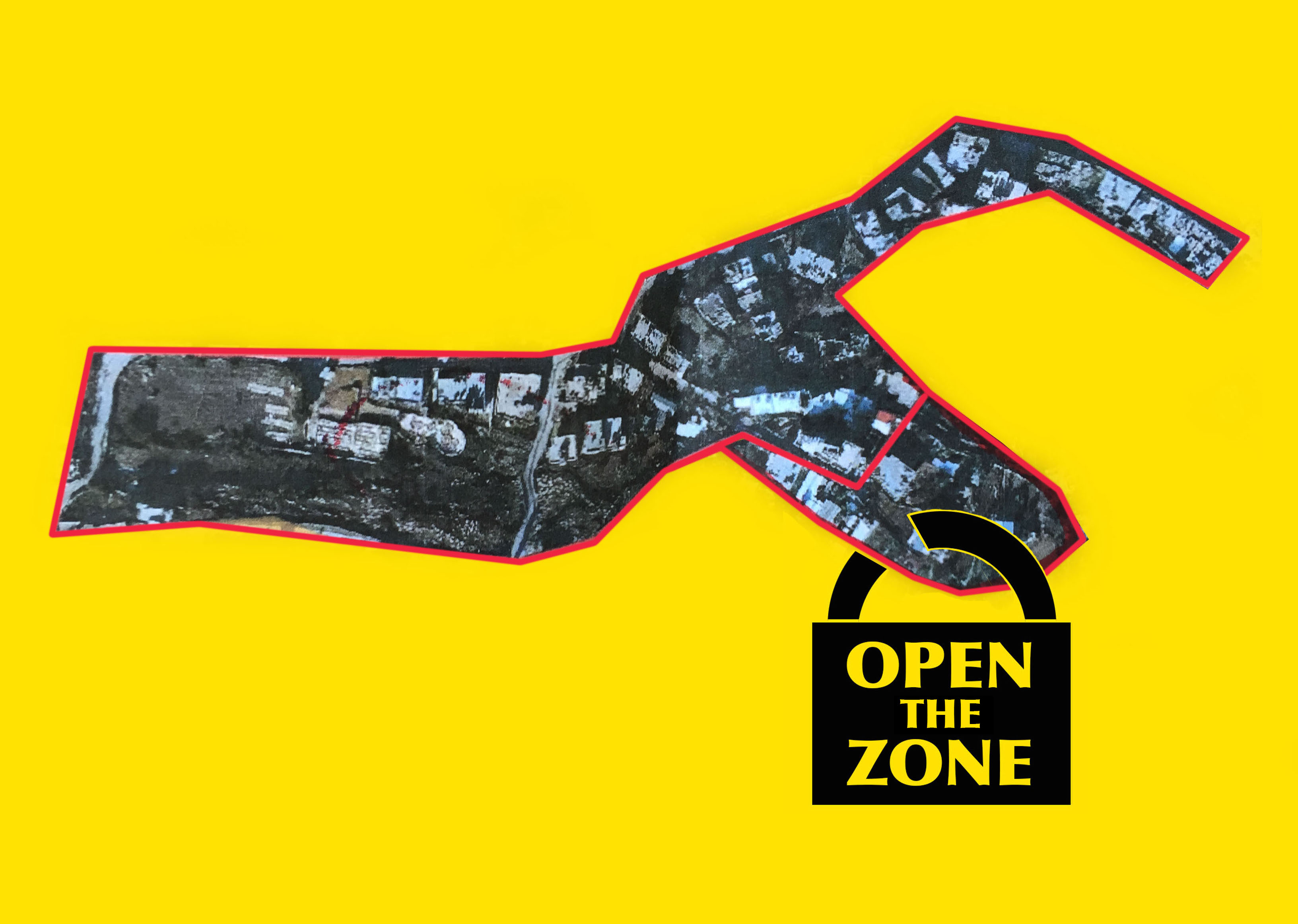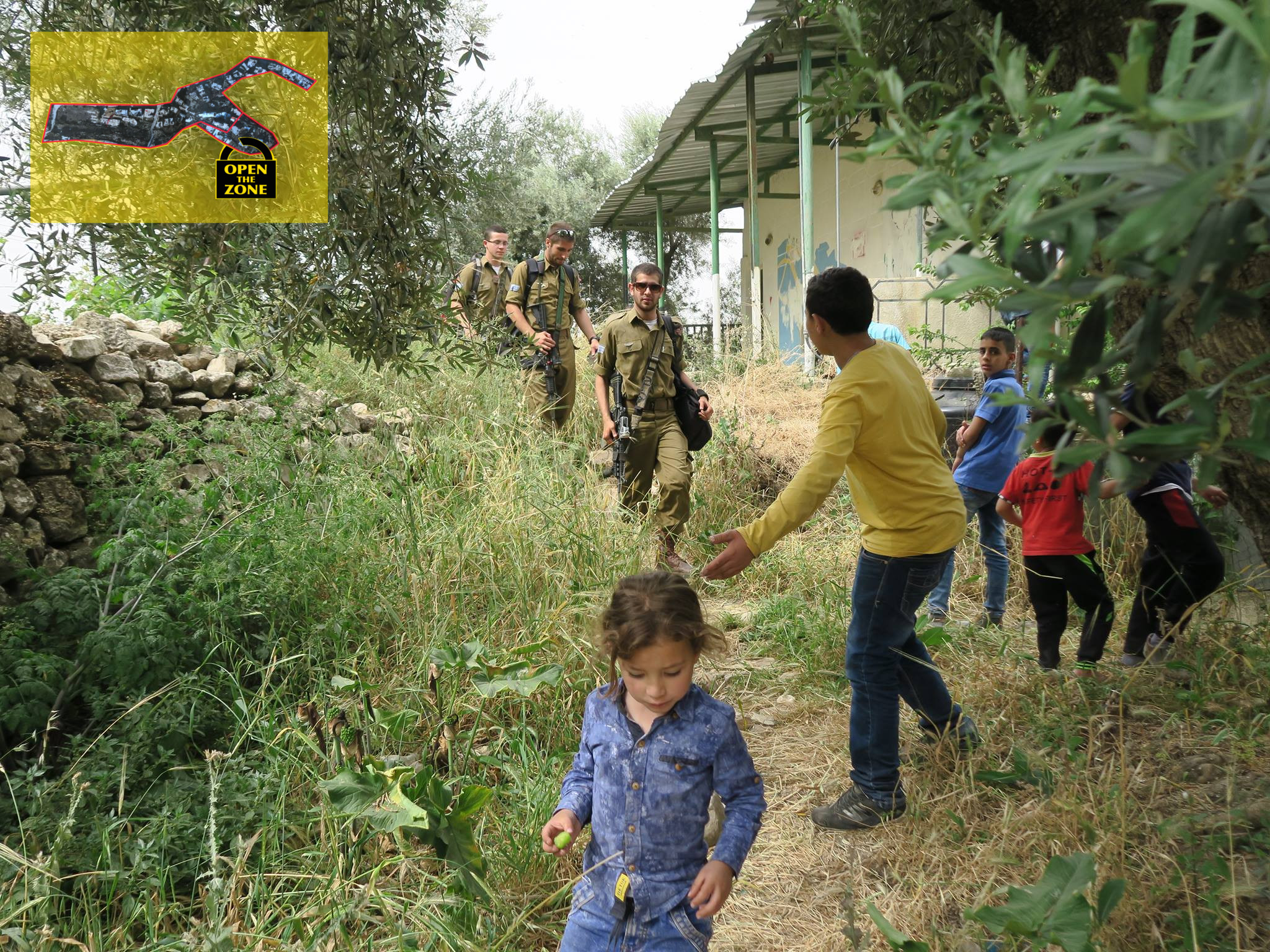Tag: Closed military zone
-
Open The Zone: information on CMZ and Hebron
Friday, May 27th Tel Rumeida and Shuhada Street are among the oldest areas of the city of Hebron. They are also among the most difficult places for Palestinians to now live. The first illegal settlements set up after the Israeli occupation in 1967 were along Shuhada Street and in Tel Rumeida. Populated by ideological Israeli settlers…
-
Open The Zone campaign against Closed Military Zone launched in Hebron
3rd May 2016 | Open The Zone Campaign| Hebron, occupied Palestine On May 3rd 2016, the Open the Zone campaign was launched in cooperation with Zleikha Mohtaseb with a children’s play about oppression, which took place directly outside the arbitrary borders of the closed military zone in Tel Rumeida, Hebron. The campaign targets the deliberate…
-
Open The Zone: personal accounts
Saturday, May 28th (Mufeed Sharabati) Mufeed Sharabati, 50-years, Shuahda Street resident compares living in the closed military zone (CMZ) with prison – just worse: “Life here is even worse than being in jail. A prisoner knows when his sentence is over. A prisoner knows when he can have visits. No-one knows that here. We are…


